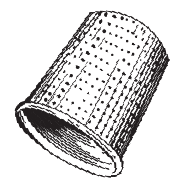1.
My brother-in-law Laszlo who was the family engineer
and Hungarian, rewired our furnace ignition during Hurricane
Sandy.
Working with laconic deliberation,
connecting the leads with his needle-nose pliers
and voltage gauge according to the rehearsed steps in his mind,
he reconfigured our ignition switch to draw power not from the
dead house feed,
whose riverside PSE&G sub-station transformer the Passaic had
flooded,
but from a green extension cord he passed through the basement
window.
I daisy-chained it to my other cords from Christmas to reach across
the street.
The guy who lived there, Dr. Paul Wicherburn,
suffered from a degenerative nerve disease
that was killing him over a ten year period,
but he was out of his wheelchair,
and walked around back through the snow
to show me where to plug into his generator
to ignite my furnace and warm my house.
A few days later, more snow fell,
and the township plowed the street,
ripping out Laszlo’s extension cord,
and inside our house it was cold again.
We felt like squatters, running the dark hallways in our headlamps
and parkas,
and saw our breath indoors, and felt the itch of our armpits in our
dirty clothes.
2.
I figured my son’s no-start was connected
to the alternator they had replaced
without analyzing the root cause.
When we popped open his hood,
his battery looked shot,
with sea-green corrosive salt crusting the posts.
In my derelict Mazda was a new battery,
and we could swap it into my son’s car,
and we would start his car
without bothering his Uncle Laszlo for once.
We had to knock all the corrosion off with a wrench,
and hope the nuts weren’t locked in with rust,
and hoist it out of the compartment
to make room for the replacement,
and it was then that my son’s great strength,
his wide shoulders and broad chest,
filled me with gratitude for his youth,
and I stopped faulting him
for all the damages he had done to our various cars,
among which had been the disastrous
front-lawn off-roading that left my Mazda
with no transmission.
With his vigor, he extracted his dead battery—
a fifty pounder shoed-in with a hidden bracket—
and thudded it into the curb grass
in front of Dr. Paul Wicherburn’s house,
where we happened to be working,
as it had been a convenient place to roll
his disabled vehicle in neutral— him pushing,
me steering.
When Paul’s disease finally did kill him,
his wife, Molly, told me that Paul
had loved to watch our family’s antics
on bad days, through the window,
from his wheelchair.


